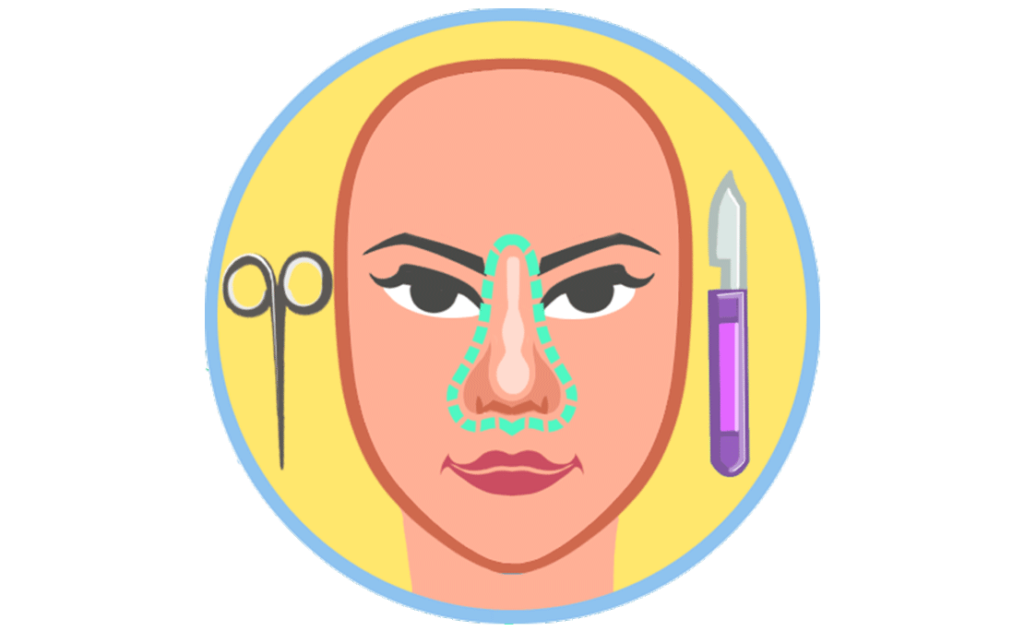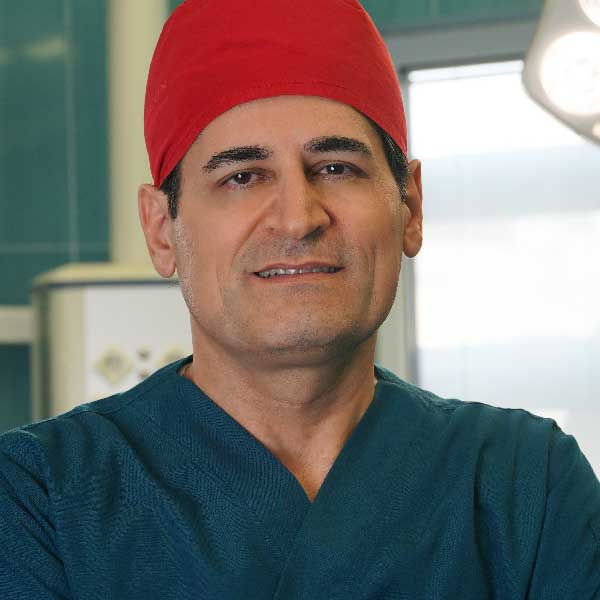
The nose is one of the most important components of the face, and its appearance has a great impact on the appearance of the human face. Rhinoplasty is performed for patients who are dissatisfied with the shape or size of their nose to get the desired shape of the nose. During rhinoplasty, the nose can be reshaped small, large, or tailored to the patient’s face. Every year, thousands of patients seek rhinoplasty, because it increases the patient’s sense of satisfaction and confidence.
In addition to changes in appearance during rhinoplasty, respiratory problems and internal abnormalities or injuries caused by trauma are corrected in this way so that in addition to a beautiful appearance, the patient has a proper and healthy breathing path.
Operation technique
Rhinoplasty can be performed in two ways, depending on the condition and need.
- Closed method
In this procedure, all surgical incisions are made inside the nose and there are no stitches on the skin of the nose. This method is preferable for cases where the nasal defects are minor.
- Open method
In this procedure, for easy access and three-dimensional vision of the skeletal structure of the nose, the surgeon makes a delicate incision in the middle base of the nose (columella) and removes the skin and subcutaneous tissue. And with complete mastery over the cartilaginous and bony structure, surgery is performed. This method can be used for all types of noses.
Today, due to advances in surgery and modern rhinoplasty techniques, rhinoplasty is often performed in an open manner.
Duration of surgery
Depending on the condition of the nose, rhinoplasty can take about 2 to 3 hours or more.
Anesthesia
Rhinoplasty is performed under general anesthesia or local anesthesia, depending on the patient’s condition.
Inpatient / outpatient status
After rhinoplasty, the patient is discharged when the patient is fully conscious and tolerates the fluid regime.
Possible side effects
There will be some swelling and bruising on the nose and eyelids, which usually goes away within 2 weeks after rhinoplasty. Swelling of the nasal airways improves within 1 to 2 weeks after rhinoplasty.
Complications
Rhinoplasty, like any other procedure, can be complicated. If the surgeon is careful and skillful and the patient follows the instructions, the possibility of these complications is minimized. Complications of rhinoplasty can be divided into two categories:
- Those complications of the nose that manifest themselves in the function of the nose. Such as adhesions inside the nose or excessive narrowing of the nostrils that cause respiratory problems.
- Complications that appear in the appearance of the nose and are mainly due to excessive removal of nasal tissues. Such as shrinking of the nose, which is disproportionate to the components of the face.
The best time for secondary and corrective surgery is at least 6 months to a year after the initial surgery.
Recovery
About 1 to 2 days after rhinoplasty, the inner guard of the nose and 5 days later, the outer guard (plaster splint) of the nose is removed. Micropore adhesives with a width of one centimeter are used for 1 to 2 months, depending on the type of nose and skin type. Also, depending on the sebaceous glands in the skin, the nasal adhesive should be changed 2-3 times a week.
In the first week after rhinoplasty, bathing from the neck down can be done, and hair washing should be done in such a way that the nose splint does not get wet. It is also possible to clean the face and around the eyes with a damp cloth.
Results
The results of rhinoplasty are permanent, but you have to be patient and wait about 6 months to a year to get the final result

